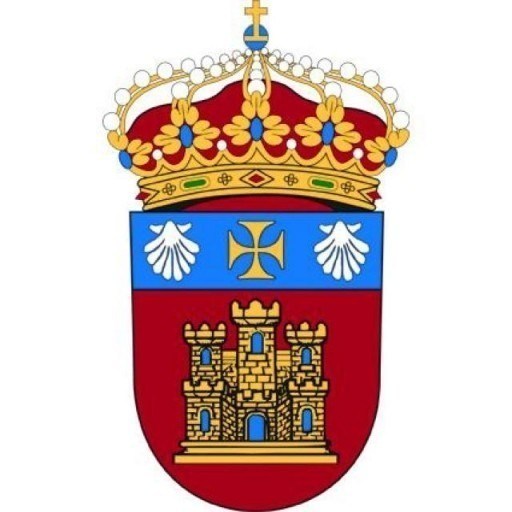The Bachelor’s Degree in Structural Materials for New Technologies at King Juan Carlos University is an innovative program designed to prepare students for the rapidly evolving field of advanced materials and construction technologies. This multidisciplinary degree combines principles from engineering, materials science, and innovation management to develop professionals capable of designing, analyzing, and implementing cutting-edge structural materials required for modern infrastructure, transportation, aerospace, and nanotechnology applications. Throughout the program, students will explore the fundamental properties of materials, including metals, polymers, ceramics, composites, and bio-based materials, with a special focus on their performance under different environmental conditions and their safety, durability, and sustainability aspects. The curriculum emphasizes laboratory work, computational simulation, and practical projects, fostering hands-on skills and real-world problem-solving abilities. Students will also learn about the latest innovations in materials engineering, such as nanomaterials, smart materials, and lightweight composites, which are essential for developing sustainable and efficient technological solutions. The program aims to produce graduates who are equipped to contribute to the development of new materials for high-tech applications, optimizing manufacturing processes, and ensuring environmental sustainability. Additionally, the program provides training in research methodologies, quality control, and technical communication to prepare students for careers in R&D, industry, and consultancy. Graduates will be well-positioned to work in sectors such as aerospace, automotive, construction, renewable energy, and advanced manufacturing, or to pursue further postgraduate studies. The degrees are supported by the university’s state-of-the-art laboratories and collaborations with industry partners, ensuring that students receive a comprehensive education aligned with current market demands and technological advancements. The program also aims to foster innovation and entrepreneurship, encouraging students to develop new ideas, products, and solutions that address global challenges related to materials and structural design. Upon completion, graduates will have a solid foundation in the science and engineering of structural materials for new technologies, opening pathways to dynamic careers focused on advancing material development for a sustainable future.
The Bachelor’s Degree in Structural Materials for New Technologies at Carlos III University offers students a comprehensive education focused on the design, development, and application of innovative materials used in cutting-edge technological fields. This program is tailored to prepare graduates for careers in advanced materials engineering, where understanding the properties, processing, and performance of structural materials is essential. Throughout their studies, students will explore a wide range of topics including the fundamental principles of materials science, the chemistry and physics behind different materials, and the latest advancements in composite, nanostructured, and smart materials.
The curriculum emphasizes both theoretical knowledge and practical skills. Students will engage in laboratory work, project-based learning, and internships with leading industries, equipping them with hands-on experience necessary for their professional development. Key areas of study include material characterization techniques, manufacturing processes, durability and corrosion of materials, and sustainability considerations in material selection and usage.
In addition to core technical subjects, the program incorporates modules on innovation management, research methodologies, and the economic and environmental impacts of material choices. This multidisciplinary approach ensures graduates are well-prepared to face the challenges of evolving technological landscapes and to contribute effectively to sectors such as aerospace, automotive, construction, electronics, and renewable energy.
The program also encourages international mobility and collaboration. Students have opportunities to participate in exchange programs, joint projects, and workshops with partner institutions worldwide. This global perspective enhances their understanding of international standards and practices within the field of structural materials.
By the end of the program, students will possess a solid foundation in the science and engineering of new structural materials, along with the skills necessary for research, development, and application in innovative technological environments. Graduates will be capable of contributing to the development of sustainable, efficient, and high-performance materials that meet the demands of modern industry and future technological advancements.
The Structural Materials for New Technologies program at Carlos III University requires prospective students to meet specific academic and language proficiency standards. Applicants are expected to have completed a high school diploma or an equivalent qualification that grants access to university studies in their country. A strong background in sciences, particularly in Physics and Chemistry, is highly recommended to ensure a solid foundation for understanding material properties and technological applications. Prospective students must demonstrate proficiency in English, typically through standardized tests such as IELTS or TOEFL, with minimum scores set by the university to ensure adequate communication skills required for coursework and research activities.
The program may also require submission of official transcripts, letters of motivation, and recommendation letters from previous educators or professionals familiar with the applicant’s academic capabilities. Additionally, applicants might need to participate in an interview process to assess their motivation and suitability for the specialized field of structural materials in emerging technologies. Some candidates may be required to pass an entrance examination or provide evidence of relevant work or research experience in materials science or engineering to strengthen their application.
Graduate requirements include maintaining a specified minimum GPA throughout the duration of the program, completing a set number of coursework credits, and successfully defending a final thesis focused on innovative structural materials. The curriculum emphasizes both theoretical knowledge and practical skills, including laboratory work, project development, and internships in collaboration with industry partners. Students are expected to keep abreast of recent technological advancements and emerging trends in materials engineering, which may involve participation in seminars, workshops, and conferences.
Eligibility for graduation depends on the successful completion of all coursework, laboratory modules, and the final project, alongside adherence to academic integrity policies. Graduates will be equipped with specialized knowledge concerning the development, characterization, and application of advanced materials for structural uses in modern technological fields, preparing them for careers in research, development, or industrial manufacturing sectors.
The Structural Materials for New Technologies program at Carlos III University offers a comprehensive financial structure designed to support students throughout their academic journey. Tuition fees are structured according to the regulations established by the university and are subject to periodic adjustments. Typically, tuition costs for master's programs at Carlos III University fall within a range that ensures accessibility while maintaining quality standards. For international students, additional fees may apply, including registration, administrative, and material costs. The university provides various scholarships and financial aid programs aimed at reducing economic barriers for qualified students. These funding opportunities encompass merit-based scholarships, need-based grants, and specific programs targeting international students or those pursuing research-intensive tracks within the program.
Students can also benefit from government grants or loans, depending on their country of origin and eligibility criteria. The university collaborates with several public and private organizations to facilitate internships and research funding, which can subsidize or cover part of the study costs. Additionally, some students opt for part-time work arrangements either within the university or externally to support their studies financially. Payment plans and installment options are often available, allowing students to manage their finances more flexibly. It is recommended that prospective students consult the official university website or contact the admissions office for detailed, up-to-date information regarding specific costs, available scholarships, application procedures for financial aid, and deadlines. Overall, the program's financing system is designed to ensure that talented students from diverse backgrounds can access high-quality education in structural materials without undue financial hardship.
The Structural Materials for New Technologies program at the Carlos III University offers an in-depth exploration into advanced materials used in modern engineering and technological applications. This degree is designed to equip students with the knowledge and skills necessary to understand the properties, processing, and applications of structural materials such as composites, polymers, ceramics, metals, and innovative nanomaterials. Throughout the program, students engage with fundamental concepts of materials science, including crystallography, thermodynamics, and mechanical behavior, alongside specialized topics like biomaterials,Smart Materials, and environmentally sustainable materials.
The curriculum typically combines theoretical coursework, laboratory practicals, and project-based learning to ensure a comprehensive understanding of both the scientific principles and real-world applications. Students learn about the manufacturing processes, testing methods, and performance evaluation of various materials, preparing them for careers in research, development, quality control, and production industries. The program emphasizes the importance of innovation and sustainability in materials science, reflecting current trends in technological development and environmental considerations.
Students may have the opportunity to participate in research projects, internships, and collaborations with industry partners, providing valuable practical experience. The program also focuses on developing skills in data analysis, problem-solving, and communication, which are essential for professional success in engineering fields. Graduates of the program are well-prepared to pursue careers in sectors such as aerospace, automotive, construction, electronics, and renewable energy, where advanced materials play a pivotal role. Additionally, many students choose to continue their education through master's and doctoral studies, contributing to ongoing advancements in materials technology. The program is delivered in line with international standards, fostering a global perspective and enabling graduates to operate effectively in diverse technological environments.









